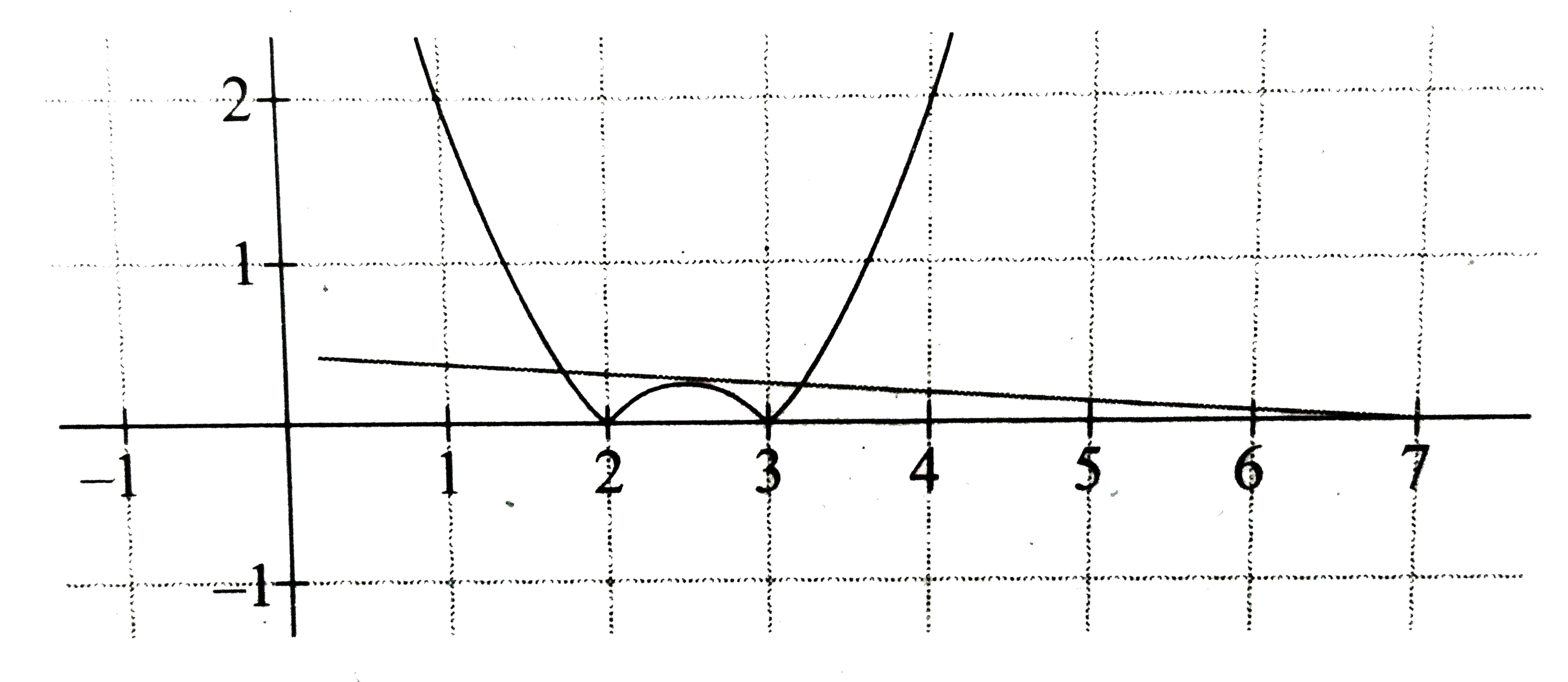If the equation ∣∣x2−5x+6∣∣−λx+7λ=0 has exactly 3 distinct solutions then λ is equal to
−7+√23
−9+4√5
−7−√23
−9−4√5
The correct Answer is:B
(b) ∣∣x2−5x+6∣∣−λx+7λ=0 has exactly three solutions,
∴ as shown in the graph
−x2+5x−6=λx−7λ must have equal roots

∴x2+(λ−5)x+6−7λ=0 has discriminant zero
⇒λ=−9+4√5
Topper's Solved these Questions
- BOOK - CENGAGECHAPTER - THEORY OF EQUATIONSEXERCISE - Multiple Correct Answer6videos
THEORY OF EQUATIONS
- BOOK - CENGAGECHAPTER - THEORY OF EQUATIONSEXERCISE - Comprehension12videos
THEORY OF EQUATIONS
- BOOK - CENGAGECHAPTER - STRAIGHT LINESEXERCISE - JEE Advanced Previous Year4videos
STRAIGHT LINES
- BOOK - CENGAGECHAPTER - THREE DIMENSIONAL GEOMETRYEXERCISE - Question Bank20videos
THREE DIMENSIONAL GEOMETRY
Similar Questions
Knowledge Check
- Question 1 - Select One
If the equation x3−6x2+9x+λ=0 has exactly one root in (1, 3), then λ belongs to the interval
A(−6,−3)B(−4,0)C(−2,2)D(−1,3) - Question 2 - Select One
Let λ be a real number for which the system of linear equations
x+y+z=6
4x+λy−λz=λ−2
3x+2y−4z=−5
has infinity many solutions then λ is a root of the quadratic equation:Aλ2+3λ−4=0Bλ2−3λ−4=0Cλ2+λ−6=0Dλ2−λ−6=0
If the equation sin−1(x2+x+1)+cos−1(λx+1)=π2 has exactly two solutions for λ∈[a,b), then the value of (a+b) equals
View SolutionLet λ∈{−2−1.0,1,2} then probability that the equation ∣∣x2+3x∣∣+λ−λx=0 possesses exactly three solutions, given that it possesses atleast 2 solution is ab(aandb are co-primes), then value of a+b is
View SolutionIf the equation 3x2+3y2+6λx+2λ=0 represents a circle, then the value of λ. lies in
View SolutionIf the equation 3x3+2x2−5x+λ=0 ,has two distinct and real roots in [0,1] ,then the values λ can take are
View SolutionIf the equation sin−1(x2+x+1)+cos−1(λx+1)=π2 has exactly two solutions, then the value of λ is
View SolutionIf the equation 2cosx+cos2λx=3 has only one solution , then λ is
View Solution

